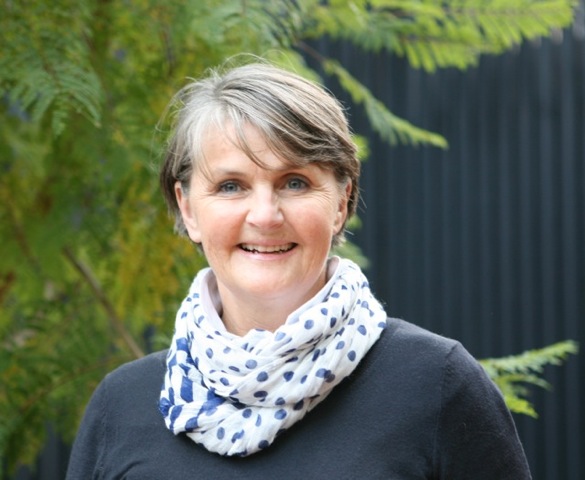I was recently asked this question: If I commit myself to one idea, person, job, thing, I am worried that I will miss the opportunity to experience so many other things in life that I could possibly love more. How do I get rid of this worry?
We must all make the fundamental choice: breadth or depth? Of course which one we choose will depend on the area of life and its significance for us with regard to our growth and life lessons, but whatever we choose, if we follow our feelings, we will never have regrets.
Our feelings are our inbuilt guide to happiness, fulfillment and peace. Our feelings are actually the way our unconscious mind, some may say our higher self, communicates with our conscious mind and they are an unfailing and infallible information, and protection, system. Once we learn to pay attention to our feelings and learn to interpret them correctly, they lead us to the choices that provide optimal satisfaction, joy and, in some cases, enlightenment.
In the areas of our life that are purely about the enjoyment and experience of human life, breadth of experience may allow us to feel that we really tapping into the best life has to offer. I played A grade water polo for the best part of two decades. Most of my teammates played at a state, and even national level, but I just did not have that sort of dedication. I did not want to train every morning and every night just to qualify. I loved playing the game and never tired of it over the years, unless I played too much of it, in which case my interest in the sport quickly waned. I was far more interested in playing lots of sports at a lower level, I just found the diversity of the experiences far more interesting, stimulating (physically and intellectually) and rewarding.
This is a good approach to take in the arenas where we just want to enjoy life, like sports, hobbies and travel, and diversity serves to enhance our enjoyment and intensify their rewards.
But then there are the arenas of life where the focus and purpose is more than mere enjoyment, which involve the far more important and significant factors of personal growth and development, such as our relationships at home and at work, where depth of experience is of far greater benefit to us in the long term, and is actually a requirement.
Our professional and personal relationships teach us about ourselves, providing crucial information about who we are and why we are here. Because they have a soul purpose they push us to move past our initial base responses of self-serving instinct and selfish desire. Our relationships ultimately teach us, if we have the insight and perspicacity to see and understand, that there is more at play than just our own gratification and that, that beneath the surface of our life conditions and daily events, we are here to learn to feel and experience our common humanity (or as some would say, our oneness).
We have all been inculcated with the traditional, and now outdated, views relationships and work - namely that our relationships enable us to create with another that which has been traditionally seen to be more difficult to achieve individually, and that we should work largely for money and physical survival. However, as the economic drivers behind these attitudes recede, because fewer people in certain parts of the world now live purely just to survive, we can begin to see that our relationships at home and at work actually provide us with unique opportunities to learn how to love more perfectly, which is to love even when we do not feel like it, and even when it is difficult.Gradually our experiences in our relationships reveal the reason we are here because they actually teach us about our true nature.
If we leave these relationships prematurely, just because they demand too much of us or we just want something different for the sheer fun of it, the lessons will be ours to learn all over again. As Helen Keller, author, political activist and lecturer who was the first deaf-blind person to obtain a Bachelor of Arts degree, astutely observes: “…human experience teaches that if we cannot succeed in our present position, we could not succeed in any other. Unless, like the lily, we can rise pure and strong above sordid surroundings, we would probably be moral weaklings in any situation.”
This does not mean we stay regardless. If we have learned all that the relationship has to teach us, and the timing is right, the relationship will actually veer into dysfunction if we stay. If it is right to go, we may suffer breakdown or emotional collapse if we stay. This is not an overstatement. We are only meant to stay in situations where growth is possible. Just as we cannot not stay in a particular class just because we have great friends and a wonderful teacher, we cannot stay in relationships once their purpose is achieved and finished with. When it is time to graduate to the next class we must go, otherwise our bodies and our lives disintegrate into stagnation and disorder.
A poignant example of this is provided by Lauren Winner, an academic and minister of the Episcopal Church in Virginia, who experienced a clash of her emotional life with her theology. In her book “Real Sex: The Naked Truth About Chastity” she tells how after five years of marriage, she pushed up against the strict teachings of her church that dictated that she stay in her marriage because, as she says, “Christians stay.” She became so desperate she felt she had to choose between “Christianity or divorce.” The pain of staying somewhere her whole body, mind and soul knew she should not be gave her no real option:
“…I will just have to embrace secular humanism because I am not even sure I believe any of this anymore and it is one thing to devote twenty minutes every morning to praying when you are not sure you believe anything anymore and it is another thing to organize your whole life around a marriage you don’t want to be in because a God who may or may not exist says let no man put asunder.”
The skill is in knowing when it is right to leave, which turns on knowing when the relationship has nothing more to teach us. In this case our feelings will guide us to the next stage of our experience.
I began my teacher training at 18 and married at 19. Both choices were made as a result of outside pressures, imposed by those who benefited by most by my choices. I lasted 7 years. Like Lauren Winner, the emotional dissonance and the resulting stress intensified slowly until it became untenable, and I felt I had to leave the church I loved because I couldn’t cope with all the guilt that I felt. I left the man, and the tenured teaching position, and moved towards an unknown future but, because my unease and unhappiness were so great, I was never tempted to look back.
Within a couple of years I finished a law degree that I had started whilst teaching, and I moved overseas, in what was the first of a series that lasted 14 years, covering six countries and four continents. My life became motivated by the new and the different, as opposed to the known and the predictable. It was the life that fed my soul and allowed me to grow in ways that my soul longed for. Boredom for me equals death and, for me, a boring life was just not worth living. But it was also the life that gave me the experience that allowed me to develop the skills to allow me to live my life today, alone, because my partner of 20 years died suddenly 10 years ago.
Living the life our soul desires demands a sophisticated level of intellectual, emotional and spiritual intelligence to balance the competing demands, forces and energies of all the people, conditions and events we have to cope with in this life. If we do not develop this broad based intelligence, if we just continue to live superficially, gratifying every urge, scratching every itch, motivated primarily by the avoidance of pain and the pursuit of pleasure, without regard to the big picture of who we really are and why we are here, all the new, exciting and different things in the world will only ever feel empty and soulless.

